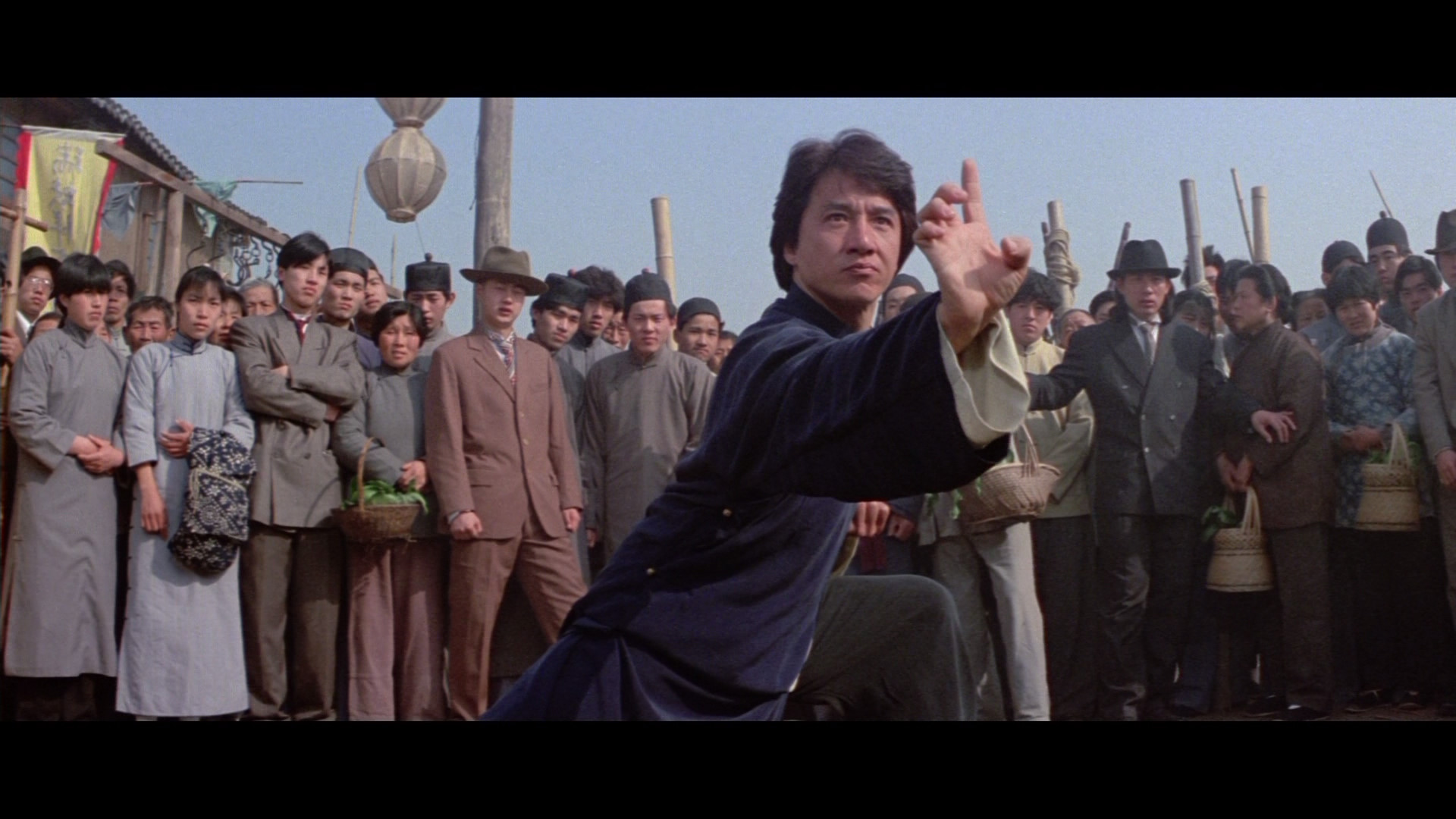Man of Action: 8 Films That Made Jackie Chan a Legend
Nov 18, 2016 • Mikhail Lecaros

Nov 18, 2016 • Mikhail Lecaros
By Mikhail Lecaros
On November 12, action icon Jackie Chan was the recipient of an honorary Academy Award recognizing a career that has, thus far, has spanned 56 years and well over 200 films. Presented to Chan by Tom Hanks, Michelle Yeoh, and Chris Tucker, the Oscar nod was seen by many as one well-deserved by a performer often touted to be the hardest-working man in showbiz.
Internationally recognized for his ability to mix kung-fu, stunt work and comedy, Chan first broke into movies as a child performer in films with his classmates from the Peking Opera School. Following a short stint as a construction worker in Australia in 1976, Chan returned to Hong Kong to star in a sequel to the Bruce Lee hit Fist of Fury. However, this–and several subsequent attempts to package Chan against type as Lee’s successor following his death–failed, frustrating the young actor. As Chan himself once said, “I never wanted to be the next Bruce Lee. I just wanted to be the first Jackie Chan.”
In 1978, Chan would collaborate with first-time director Yuen Woo Ping (who would go on to choreograph fights for The Matrix, Kill Bill, and Crouching Tiger, Hidden Dragon) to create Snake in the Eagle’s Shadow, widely credited as the first kung fu comedy of its type. The film was a smash, leading to a more polished effort later that year, the now-classic Drunken Master.
Subsequent films would see Chan add death-defying stunt work into the mix and the rest, as they say, was history, as audiences the world over fell in love with the big screen daredevil.
Here are eight flicks to show you just why Jackie Chan deserves that Oscar:
When Hong Kong studio Golden Harvest’s early 80s attempts to export Chan to America (Battle Creek Brawl, The Protector) failed, he returned home to hone his craft, determined to refine his formula of kung fu comedy filmmaking on his terms. While he couldn’t outdo Hollywood in budgets or explosions, he would work with the resources he had at hand: a lifetime of training, a love of classic movies, and a seemingly reckless disregard for personal safety that saw him perform the majority of his own stunts.
It wasn’t until Chan’s 90’s efforts (Drunken Master II, Police Story 3: Supercop, Rumble in the Bronx) drew positive notices in the West that Hollywood would come calling again in the form of 1998’s surprise hit, Rush Hour. Unlike his American films from over a decade prior, Rush Hour was packed with Chan’s hallmarks and boosted by his and Tucker’s chemistry and comedic timing. While the fights and choreography were somewhat less complicated than those his fans had become accustomed to, Chan’s first Hollywood hit finally let Americans in on what the rest of the world already knew.
In addition to being Chan’s first film with legendary studio Golden Harvest, Young Master was the first film he directed on his own, as well as the first in which he sang the theme song over the end credits. The physical comedy is refined further here, with Chan making impressive use of standard kung fu movie weapons like a fan and a wooden bench, while the final fight against real-life hapkido master Hwang In-Shik is equal parts intricate, brutal, and yes, funny. The film is a fantastic look at Chan in his prime, and on the cusp of superstardom as, after years of making glorified B-movies, he was now with the studio that Bruce Lee had called home.
A Chinese film set in New York, performed in English, and shot in Canada, Rumble in the Bronx was Chan’s breakthrough film in America and his first #1 at the US box office, backed up by a marketing campaign that highlighted the impressive stunt work. Directed by Stanley Tong (Police Story 3: Supercop), Chan stars as a tourist on vacation who runs afoul of the local motorcycle gang that’s been harassing his uncle’s Bronx neighborhood. Ignore the cartoonish dialogue and the fact that this version of the Bronx has mountains in the background: You know you’ve got a winner when the scene of Chan jumping off an 8-story building isn’t even the movie’s craziest stunt. Chan’s legendary work ethic was on full display behind the scenes when, after breaking his ankle while leaping onto a speeding hovercraft, he finished the film by having the crew paint a sock to look like a shoe so he could wear it over his cast and continue shooting.
Aside from the fact that Chan stars here as a crusading lawyer out to put a crooked factory out of business, Dragons Forever is notable for featuring the last on-screen team-up of Jackie with his fellow Peking Opera School alumni Sammo Hung (SPL: Sha Po Lang) and Yuen Biao (The Prodigal Son). The three had previously starred together in the Lucky Stars trilogy and Wheels on Meals. Dragons Forever ups the ante, however, with a frenetic three-way brawl between the trio, while Chan gets to shine in the finale when he faces off against real-life kickboxing champ Benny “The Jet” Urquidez.
Pages: 1 2
Mikhail Lecaros has been writing about movies and pop culture since 2012. Check out his movie podcast, Sub-Auters, and his all-out geekfest, Three Point Landing, on Spotify, Apple Podcasts, and Google Podcasts!
Input your search keywords and press Enter.

1 comment